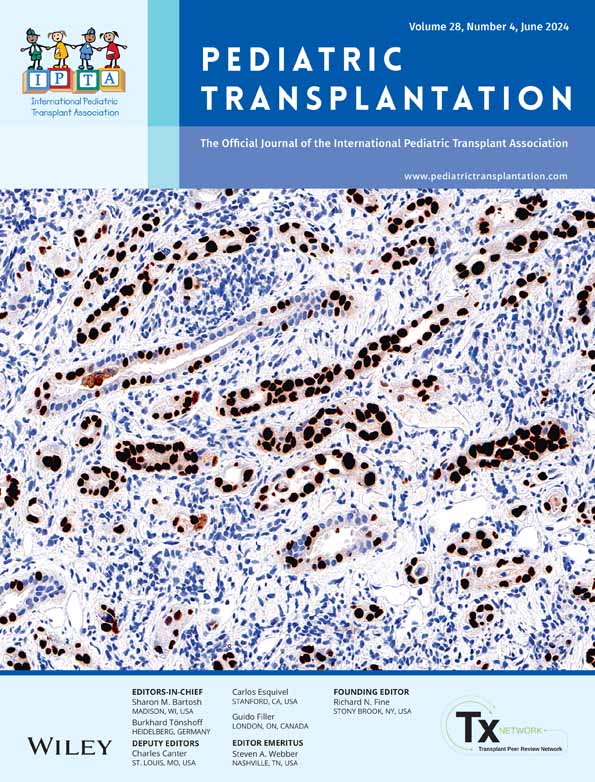Outcomes from hematopoietic stem cell transplantation following treosulfan-based conditioning: A clinical and pharmacokinetic analysis
Abstract
Background
The aims of this study are to report our experience with treosulfan-based conditioning regimens for patients with non-malignant hematologic conditions, correlating clinical outcomes at different time points post-transplant with treosulfan exposure (AUC).
Methods
This study was a single-center observational study investigating overall survival (OS), disease-free survival (DFS), and event-free survival (EFS) end-points post-transplant. The consequences of treosulfan AUC with respect to toxicity, correction of underlying disease, and long-term chimerism were also explored using pharmacokinetic analysis.
Results
Forty-six patients received 49 transplants with treosulfan and fludarabine-based conditioning between 2005 and 2023. Twenty-four patients also received thiotepa. Donor chimerism was assessed on either whole blood or sorted cell lines at different time points post-transplant. Thirty-nine patients received treosulfan pharmacokinetic assessment to evaluate cumulative AUC, with five infants receiving real-time assessment to facilitate daily dose adjustment. OS, DFS, and EFS were 87%, 81%, and 69%, respectively. Median follow-up was 32.1 months (range 0.82–160 months) following transplant. Lower EFS was associated with patient age (<1 year; p = .057) and lower cumulative treosulfan dose (<42 g/m2; p = .003). Stable donor chimerism in B-cell, NK-cell, and granulocyte lineages at 1-year post-transplant were more prevalent in patients receiving thiotepa conditioning. Two infants required daily dose adjustment to treosulfan to avoid high AUC.
Conclusions
Excellent clinical outcomes and stable chimerism were observed in this patient series. The addition of thiotepa conferred no significant toxicity and trended toward sustained ongoing donor engraftment. Correlating treosulfan AUC with long-term patient outcomes is required.
CONFLICT OF INTEREST STATEMENT
The authors declare no conflicts of interest.
Open Research
DATA AVAILABILITY STATEMENT
The data that support the findings of this study are available on request from the corresponding author. The data are not publicly available due to privacy or ethical restrictions.




